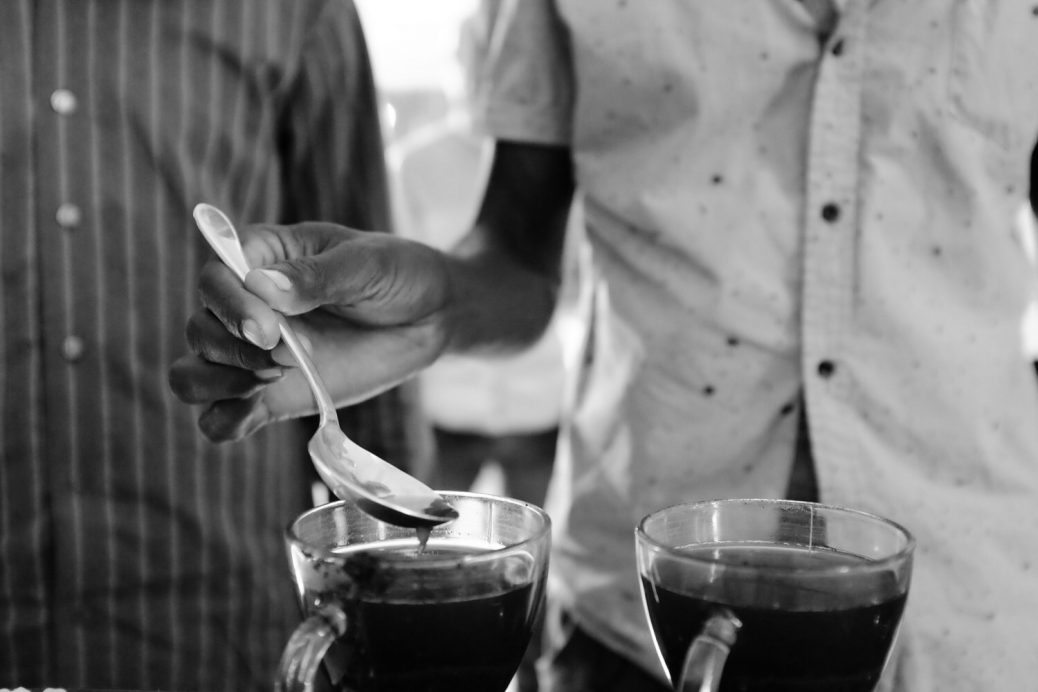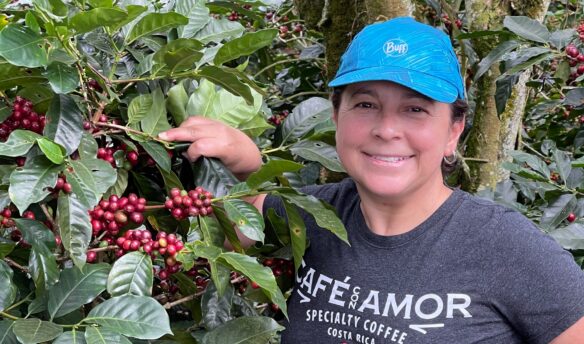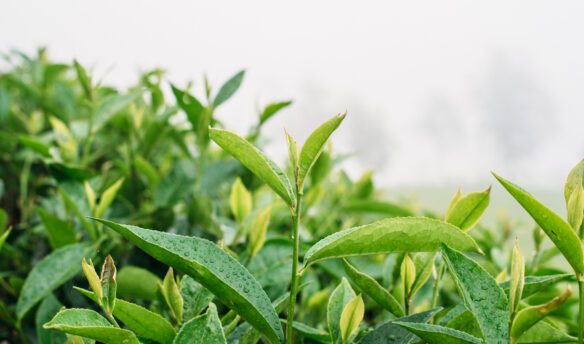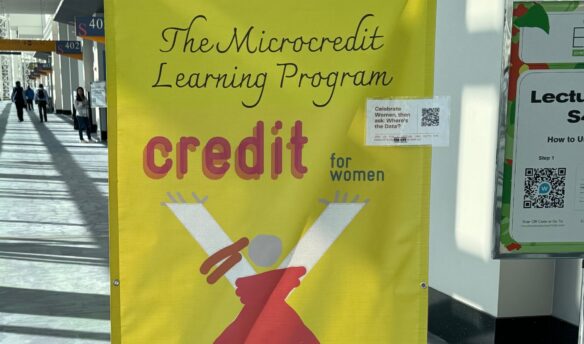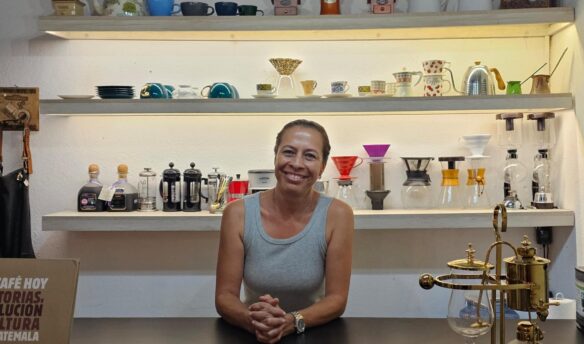Since November 2016, Emily McIntyre has been living in Ethiopia with her husband and five-year-old daughter, Eire. As part of their work with Catalyst Coffee Consulting, the McIntyres have been traveling around the country to partner with producers, mills, and processing/export professionals. Their efforts are focused on education, deepening relationships, and moving toward truly progressive Ethiopian coffee. Read more of her reports here.
[R]e-entry has me raw and hopeful.
As those of you who’ve been following my posts the last few months know, I and my husband/business partner Michael, along with our vivacious five-year-old daughter, just spent four months in Ethiopia. By doing so we substituted endless African sun for the moody rain and uncharacteristic dumps of snow in our home of Portland, Oregon. We spent weeks in the remote countryside of Harar, Yirgacheffe, and Sidama, and months with Ethiopian coffee professionals in an export factory setting. We passed countless hours in dimly-lit restaurants and our friends’ homes, clutching buna (coffee) cups and tossing back sparkling mineral water (Ambo brand). We puzzled over Amharic words, played pranks on our Ethiopian friends, and laughed, cried, raged—lived, fully.

Wednesday night we arrived in Portland again.
For me, Portland has always been the kindest location in the world. The general vibe is a sort of tolerant “be yourself and don’t make my life miserable” attitude, which I find invigorating. This winter during moments where the smells of offal and sewers and Sheno butter overwhelmed my too-sensitive nose, times when the power was off just when I had a crucial deadline to meet, and communications that went deeply wrong, I would hug the memory of my life back home to me, and it would encourage me.
Returning has been harder than I expected.
I miss the sunny, casual, crowded style of living in Africa. As I’ve often discussed with Michael, if you are a human who thinks and feels, coming to Africa strips away the layers of bullshit and reveals you in all the catastrophe and glory of your humanity. There is an ease in such vulnerability. You don’t wince over so many things. Inequality is something to face and fight or cry over, not feel insecure about. Your personal failings are shown for what they are: foibles large or small, symptoms of a universal disease—humanity. You are embraced, and embrace, based on no similarity of lifestyle or language or culture. You are human, so you deserve to be loved.
Yet again I awake to how privileged I am, to even be able to think these thoughts. And while I revel in returning to the food, conversation, coffee, and culture of Portland, a part of me will always be aching to return to Ethiopia, the birthplace of coffee and the home I left behind me.
More posts from Emily:
Week One
Week Two
Week Three
Week Four
Week Five
Week Six
Week Seven
Week Eight



